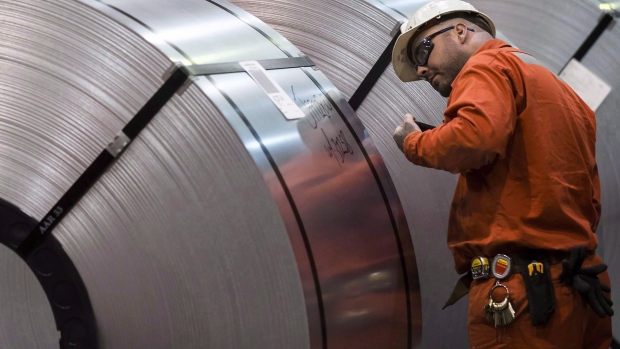Feb 28, 2019
New NAFTA will be ‘extraordinarily difficult’ to ratify this year: Advisor
, BNN Bloomberg

A NAFTA advisory council member said Canada is unlikely to ratify the revised North American trade deal this year and Ottawa should take a step back to see what happens in the United States first.
“One number to keep in mind is the number 50,” James Moore, also a senior advisor at Dentons Canada, told BNN Bloomberg in an interview Thursday. “The federal Parliament sits for 50 more days this year and then that’s it.”
He added a number of events like former attorney general Jody Wilson-Raybould’s recent testimony on the SNC-Lavalin Inc. saga, and the upcoming federal election, will continue to dominate the political conversation, making it more difficult for Canada to ratify the new trade deal, which was signed by the leaders of Canada, the U.S. and Mexico last year.
“The ability for Canada to actually ratify the new NAFTA, the USMCA, this calendar year is going to be extraordinarily difficult because there are a lot of competing interests, there’ a lot to be said about it, a lot to discuss – and of course, we have a bicameral system,” Moore said.
“I don’t think they’re going to really quickly ratify it just because Donald Trump wants us to,” he added.
U.S. President Donald Trump imposed tariffs of 10 per cent on aluminum and 25 per cent on steel last spring on the grounds of national security concerns, leading to a dollar-for-dollar retaliation by Canada that took effect in July. The tariffs have become a sticking point for Canada.
Earlier this week, Transport Minister Marc Garneau called the metal tariffs are a “serious impediment” to moving forward on the new NAFTA agreement.
Business leaders like the CEO of Linamar Corp., Canada’s second-largest autoparts maker, have also sounded the alarm on the tariffs and the impact they’re having on companies.
But when it comes to the metals tariffs being a point of contention, Moore said there’s a diplomatic middle ground for the Canadian government to take.
“Donald Trump’s ability to get any kind of an agenda passed through this Congress is going to be increasingly challenged. So for Canada to sort of sit back a little bit on the trade file in a bit of a catbird seat, and kind of wait to see what happens in the United States before we take action, is probably the best path,” he said.
A delay in replacing NAFTA with the new tri-lateral trade agreement would not be bad for Canada, Moore said.
“The best outcome for Canada, quite frankly, is NAFTA 1.0 – not NAFTA 2.0,” Moore added. “NAFTA 2.0 is better than the abrogation or the destruction of the North American platform, but NAFTA 1.0 is probably the preferred outcome. And we’ll just let American politics do what it’s going to do and lead us where it’s going to lead us.”






